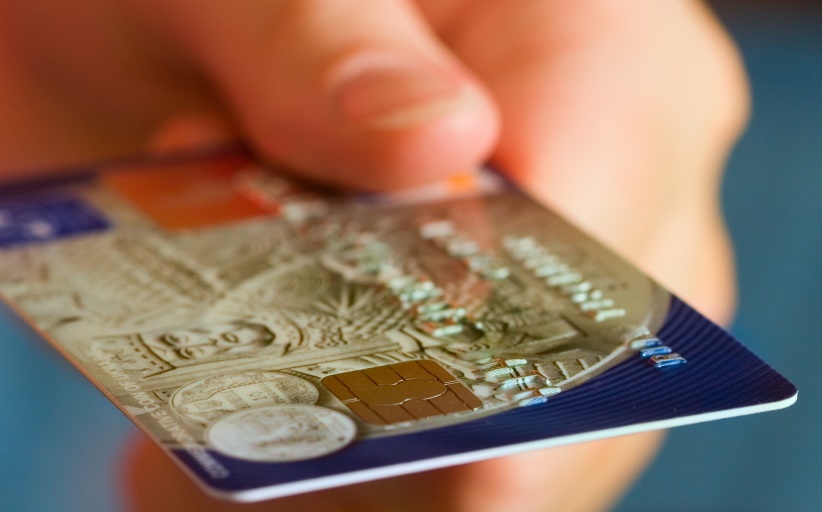While traveling abroad for business, travelers may find themselves in a souk, café or other shop queue wondering which type of card to use for payment. Making the best choice between a credit card and debit (bank) card could mean less hassle, better record keeping, and savings – for travelers and their employers.
Credit cards and debit cards are both likely to incur transaction fees. There are multiple fee types which depend on the card product or currency used and in-country rules. Card issuers, payment processors, ATM vendors, and stores may also charge fees. A search of the cards’ terms and conditions and price list can help inform payment decisions. Some payment cards may waive foreign transaction fees.
Travel managers should make sure their payment and expense policy outlines card usage rules for business travelers. They also should check if cash withdrawal is needed/allowed for certain or all travelers.
Paying with a credit card
Credit cards are widely accepted around the world and can serve as a deposit, e.g., when renting a car. The main benefits for corporate travelers are longer payment terms, insurances, points, comprehensive reporting and the option to integrate spend data into expense systems. Credit card transaction fees are typically higher than debit cards. Shops may charge a fee, and banks may charge a conversion fee for the payment. If the merchant hasn’t displayed fee notices, travelers should inquire with the staff. Credit cards may be subject to ghost charges or temporary holds.
Paying with a debit card
Debit cards aren’t used widely in corporate travel because the charges go directly to the cardholder’s bank account and don’t offer payment terms. Travelers electing to use debit card funds should note paying with the card is typically cheaper than withdrawing money from it. Users avoid ATM fees and can still collect points and credits for enrolled reward programs. Before a merchant takes payment, they may ask whether the buyer wants to pay in the local currency. This choice may circumvent certain fees, but remember, a foreign bank may still charge a fee to process the transaction. Merchants may place a ghost charge or temporary hold on a bank account to test its validity. If it’s all a bit confusing, the financial institution is the best resource for advice.
Cash and currency exchange
Carrying cash provides a safety net when payment systems aren’t working, cards get declined, or travelers encounter cash-only vendors. Swapping cash for foreign currency isn’t difficult but business travelers must decide whether to exchange currency at the local financial institution or at the destination. Exchanging money at the destination may shave off exchange rates, which are defined as the value of one currency for the purpose of conversion to another.
10 tips for managing cards and cash abroad
- Advise financial institutions of travel plans so as not to trigger any fraud, theft or unusual activity alerts. Some cards need to be activated for use abroad.
- Where needed, set payment cards to ‘on’ for use outside of the home country.
- Bring multiple payment methods on a trip, including cash in an amount the traveler is comfortable managing.
- Use an ATM locator to get a general idea of the availability of automated machines at the destination.
- Make sure to memorize personal identification numbers (PIN) for debit cards and credit cards or save them in a secure, unidentifiable manner. If a foreign ATM prompts for a 6-digit code, enter the 4-digit code and confirm with the enter button (usually green). Contactless payments, like Apple Pay or Google Pay won’t t work in all countries (like Asia), so remembering the PIN code is quite important.
- Minimize the number of cash withdrawals by electing to take bigger amounts.
- Decide when and where to exchange currency.
- Try to spend all foreign currency abroad.
- Remain alert! Each card swipe exposes you to risk. Be mindful of your surroundings and discreetly examine payment machines for “skimmers” and “shimmers,” these are magnetic strips, thin devices or other hardware use to steal your banking and credit information.
- In case of card loss or theft, freeze card activity as soon as possible. Contact your financial institution for support procuring temporary cards/emergency funds. File a police report as soon as possible.
Virtual Payment Automation (VPA) for BCD Travel clients
BCD Travel provides clients an easy way to pay for their travelers’ hotel bills while on the go. Virtual Payment Automation is an alternative to traditional corporate card. It makes it easier than ever to centrally pay for hotel arrangements for contractors, job candidates, or even an employee without a corporate credit card. By automatically generating a new virtual card number for each transaction, the risk of fraud is greatly reduced. When it’s time to reconcile, all charges on a virtual card account are automatically matched to bookings, saving travel managers and travelers’ time and resources. The hotel invoices are collected and checked and ready for reconciliation or VAT reclaim.



